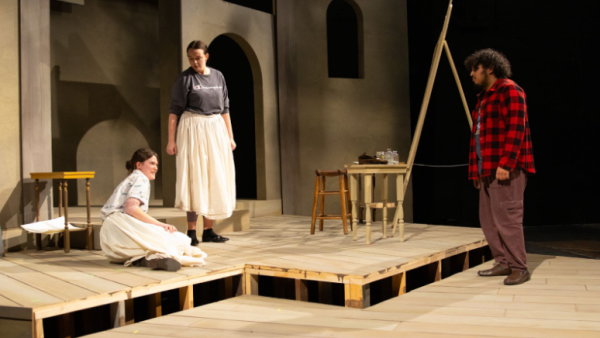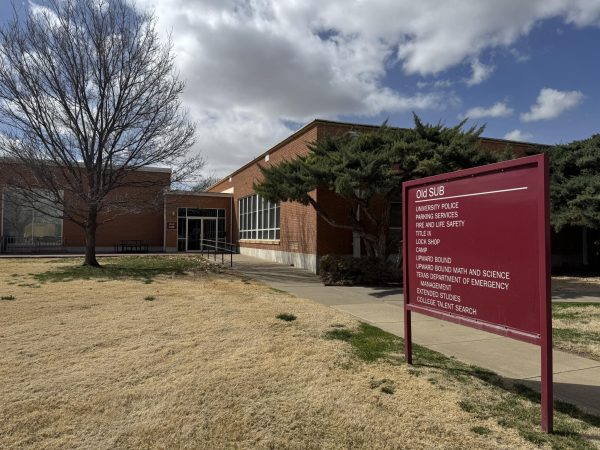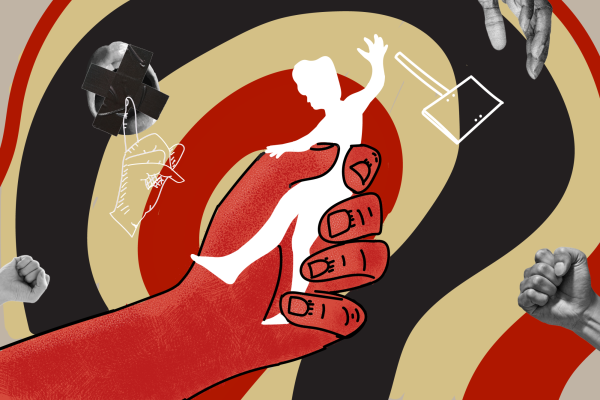Op/Ed: Religion on campus
While many social groups have become more diverse and open, there still seems to be some negative views connected to the church.
Society tells students to be themselves. To not be ashamed of who they are, yet this doesn’t seem to be the feedback for all groups. Many Christian students don’t bring up their faith for fear of being made fun of, left out, or even being called closed-minded. In a society that’s supposed to be welcoming to all, it seems like certain groups are still being left out of this acceptance.
“Our church has been labeled, specifically our church,” said Scott Cooper, associate director and associate pastor of the Wesley Foundation at West Texas A&M. “Our church as a whole, because of the standards that we hold that are from the Bible and we can show people and we’re not trying to hide this like, but standards that fall under like how we define purity, or how we fall, or how we align morally with things from our God’s view of morality, and we get called a cult for that.”
While many students are Christian, it seems that the “hardcore” believers face more judgment than most.
“My religion is whatever I die for. What my God says about me rather than what humanity says about me,” Cooper said. He even went on to say that because he lived so vicariously in his faith, he witnessed “People around me who said like, ‘Man, I’m a Christian as well. But I’m not like that. It’s like why do you have to be like this. Why do you have to be so gung ho?’”
Especially to new believers, this kind of negative feedback can truly affect how they think and live but may strengthen them. It’s particularly difficult in a post-Christian society, which is the loss of the primacy of the Christian worldview in public affairs.
“Perhaps the believers you mention are young in their faith, a place every Christain has been, and it is reasonable that they will grow in faith,” said Kent Mereness, director of Buffs for Christ. “However, in a society that leans more and more in a post-Christian direction, it is also reasonable that the risk of social ostracism, or even persecution, increases as well.”
Despite facing tension, many Christian leaders are choosing to act with love rather than anger.
“How we handle that conflict is significant, you know. Like sometimes we can handle that conflict by being angry and aggressive towards them or other times we can look for ways to live together,” said Ben Edfelt, director of the Baptist Student Ministry. Cooper said, “I feel like it’s a lot easier to love somebody when your arms are wide open to hug them, rather than when they’re closed to defend yourself. Christ kind of showed that on the cross, that’s the core and linchpin of our faith.”
While some believers are having to choose love and to face the worry of offending other students, WTAMU continues to be nothing but supportive of these ministries.
“Yes, we feel the tension of living in an increasingly post-Christian (national) culture,” Mereness said. He also said that through this, “Buffs for Christ is especially thankful to have cooperated pleasantly for so many years with WT on worthy projects, such as Shack-A-Thon.”
WTAMU continues to be accepting of its body, but this isn’t the same attitude all students have. All in faith is seen as wrong and unnatural. Christian believers are judged and looked down on when they insert Christ into all that they do. We live in a time where diversity is huge. We live in a time where there are safe zones on campus, but these social acceptances aren’t normalizing faith. Christian leaders shouldn’t have to hide what they believe in. Everyone has the right to their beliefs. Everyone has their right to speak on what’s valuable to them.
“My faith has an eternal perspective to it. I could totally be wrong, right. But if I’m not, the eternal perspective is eternal. Spending an eternity in a place that is less than what God in His Word said, we have all been created for,” Cooper said.













